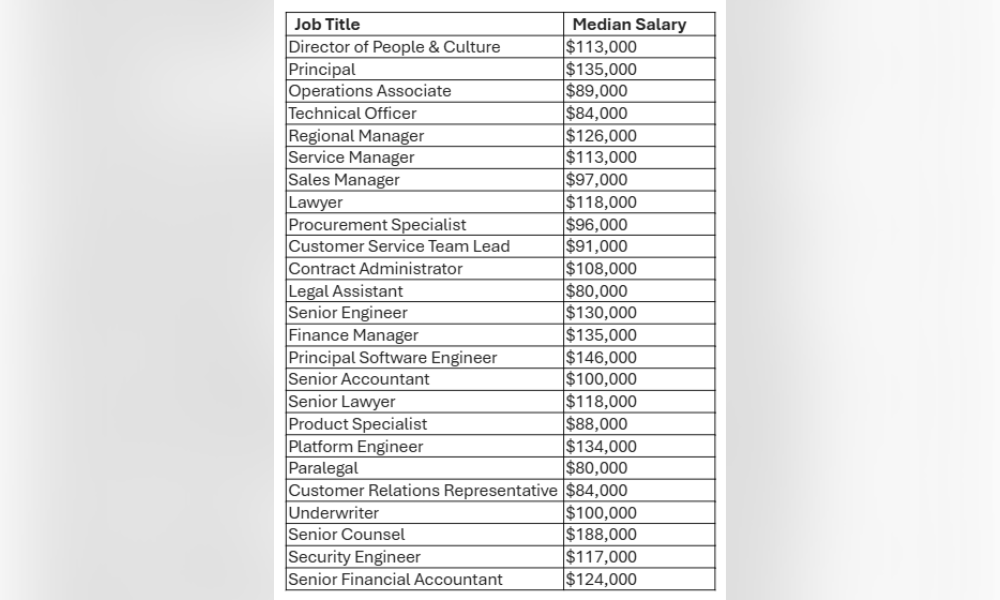
'They don't just drive change – they drive initiatives,' says academic discussing Indeed report

New research shows human resources is among the fastest growing jobs with competitive salaries in Australia.
The stats, released by Indeed, show the 25 fastest growing, high-paying roles in Australia offering median salaries above $80,000 and sizeable growth in job postings – with ‘Director of People and Culture’ at $113,000.
Businesses are prioritising operational efficiency and workforce planning which is driving demand for HR leadership and management roles, said Indeed.
“Key positions include directors of people & culture, operations associates, and senior leadership roles across business functions. Notably, job ads for regional managers increased by 25% over 2024, underscoring the need for strong leadership to enhance productivity and drive business strategy.”

“Work now is precarious, HR particularly, so [it’s about] getting talent on board that can deal with this and be agile and adaptable in the workforce,” said Caroline Knight, Senior Lecturer at the School of Business at the University of Queensland.
People managers are expected to do more than ever before.
“There is a lot changing now, especially with hybrid work, so we need HR people to be able to manage compliance, change of policy. It’s not surprising that the number of people we need is increasing because there are a lot of roles at play,” she said.
“HR is often seen as an admin role but they actually have a huge role to play in shaping business decisions and improving business outcomes."
ELMO’s 2025 HR Industry Benchmark Report highlights “a gap remains in linking HR initiatives to business performance. To bridge this, organisations must enhance analytics capabilities that clearly demonstrate HR’s impact as a business driver.”
“To thrive, we must not only be prepared for the future but also remain agile in seizing new opportunities,” the report states.
Knight told HRD that it’s about HR leaders who take a “top-down approach” to make behavioral changes and inspire change – especially with the mass amounts of data now at their disposal.
“They have oversight of the whole organisation and the data that's there and they can then pinpoint strategies for interventions, improving employee wellbeing, improving engagement, for looking at where to allocate resources,” Knight told HRD.
One of the big skills being looked at is data analysis, and HR is evolving – not just to predict outcomes, but to identify targets for intervention,” she told HRD.
“HR has always been a bit of a soft function, but I think now there’s a much greater onus on building predictive models around HR data and attaching that to overall business goals. Performance appraisals, for example, can be used to predict business outcomes in the future – something important for productivity and economy.”
The use of data is the most powerful metric to track and implement change “Knowledge is power. Data is power,” Knight emphasized, “
“HR is now informing evidence-based decisions and that’s what HR is fundamental for. They don’t just drive change – they drive initiatives,” she said. “Organisations now want people to think critically – looking at data and looking at things like, discrepancies, potential bias.”
Knight told HRD the fact that HR roles are becoming more in-demand is not a surprise – but with it comes a swathe of challenges.
“It’s all about evidence-based critical thinking and data analysis. That’s the key to this new wave of HR practitioners. Using data and focusing on building business initiatives to drive growth.”